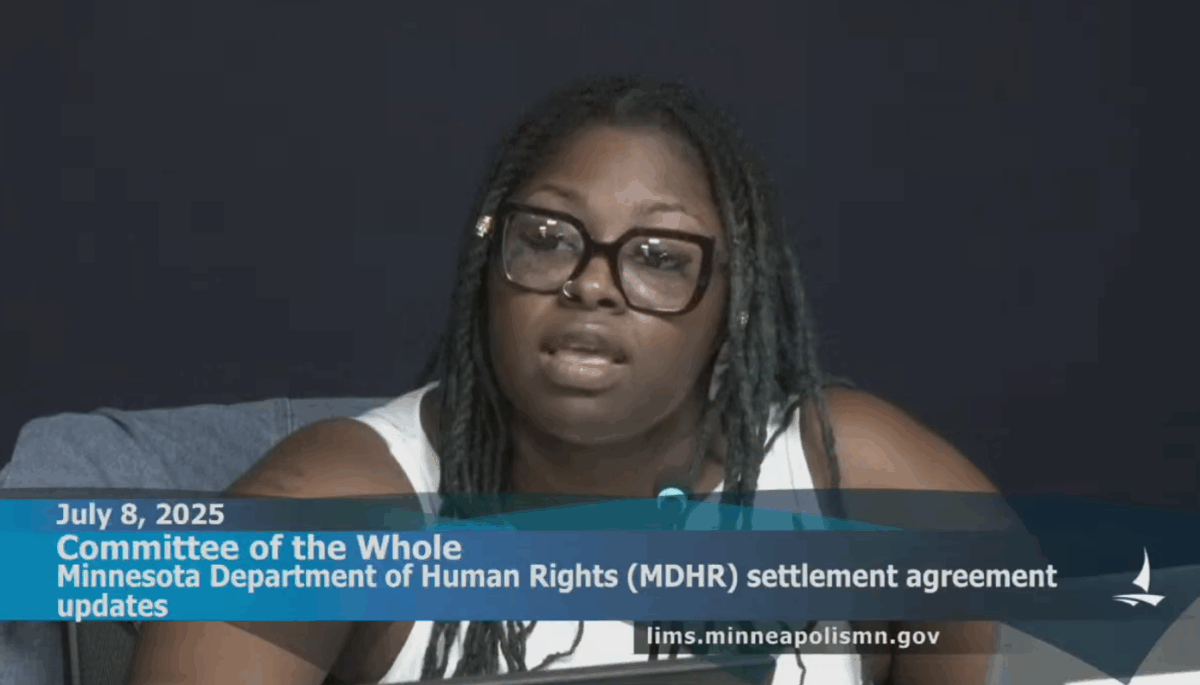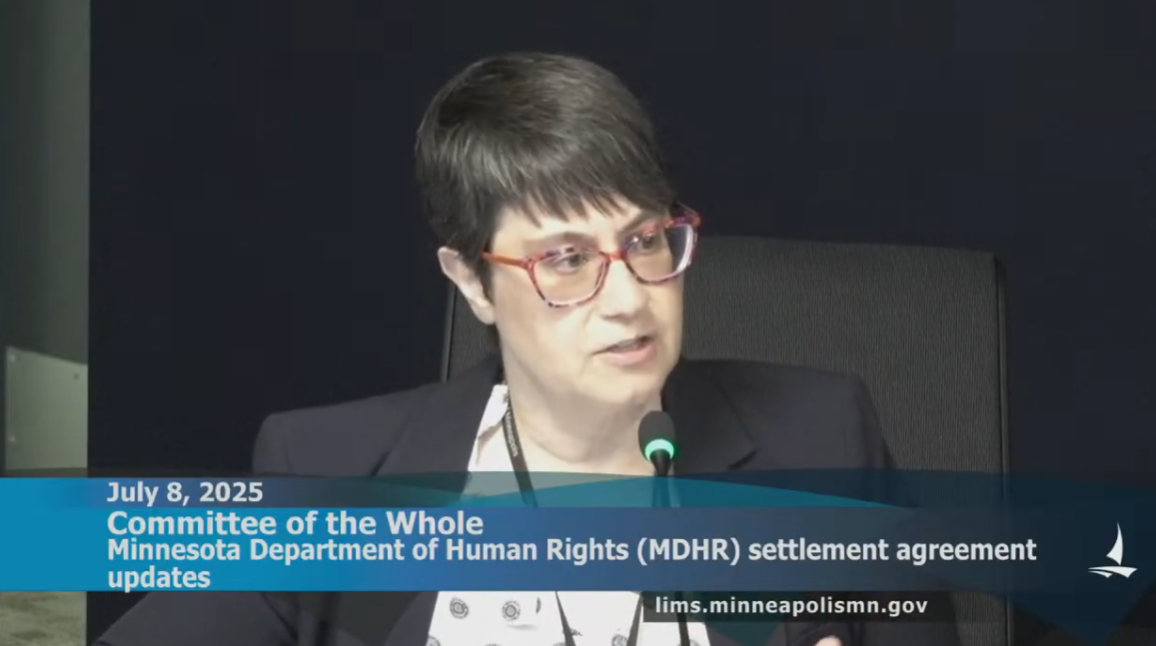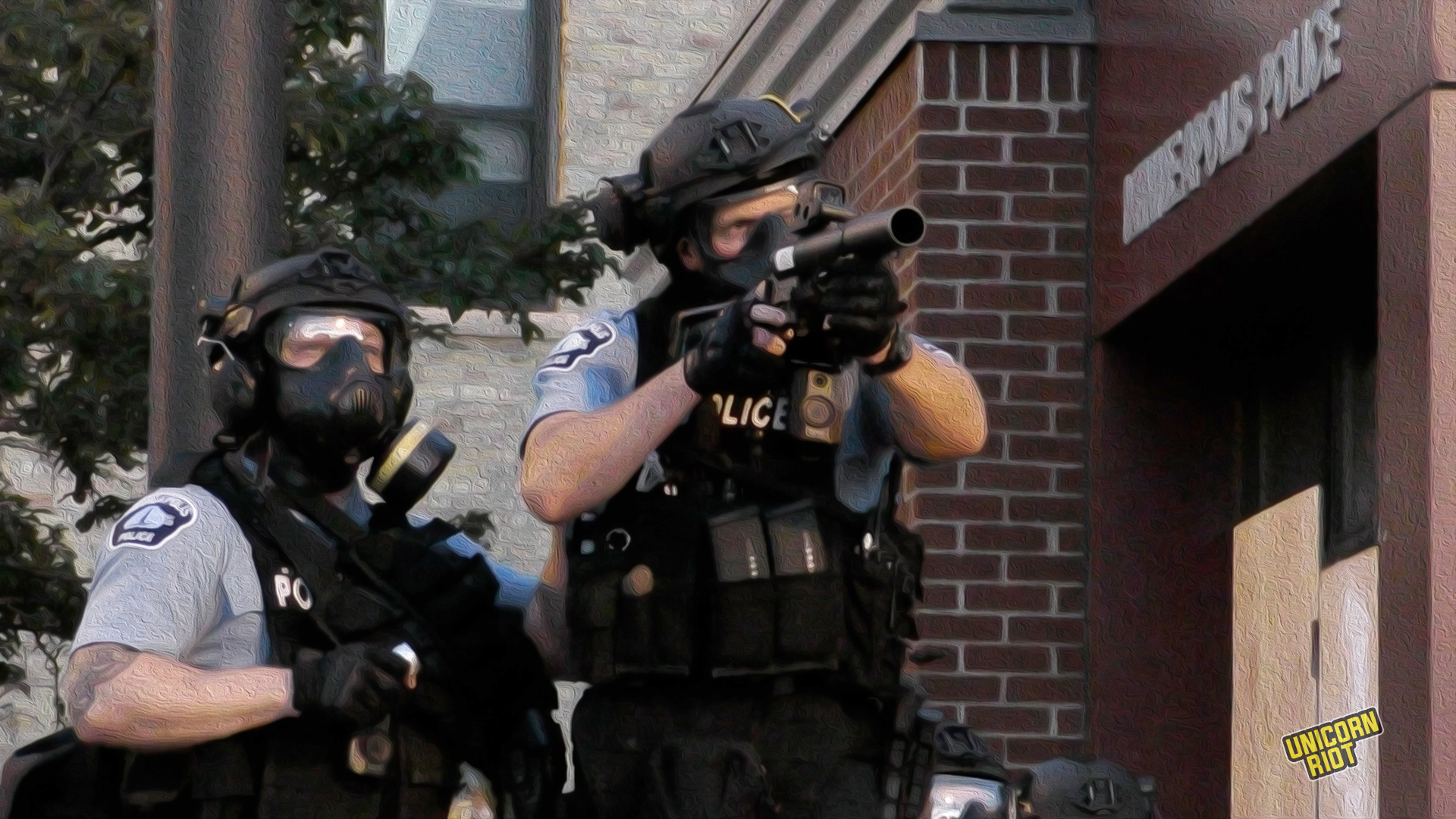Minneapolis, MN — The Trump administration ditched Minneapolis Police’s federal Department of Justice consent decree on the fifth anniversary of George Floyd’s murder. Minneapolis officials want to merge these reform provisions into an active state agreement. These efforts stalled during a July 8 City Council meeting.
In 2023, Hennepin County Judge Karen Janisch approved a settlement agreement between the Minnesota Department of Human Rights (MDHR) and the City of Minneapolis to reform a police department that state and federal investigators found violated the civil rights of African American and Indigenous people. Following Trump’s motion, US District Judge Paul Magnuson later dismissed a settlement agreement between the Department of Justice (DOJ) and Minneapolis, which included more detailed and expansive reform requirements than the MDHR agreement.
The Trump Administration dismissed another consent decree aimed at reforming the Louisville Police Dept. following an investigation sparked by Breonna Taylor’s death. The DOJ also closed investigations into police departments in Memphis, Phoenix, Oklahoma City, Trenton, N.J., and Mount Vernon, N.Y.
Had it been approved, the DOJ agreement would have required MPD to create a use-of-force review board, banned officers from chasing someone solely because they ran and banned quotas — official benchmark — for stops, drug seizures and arrests.
Derek Chauvin, the officer convicted in the murder of George Floyd, had a second job as security at the same local club Floyd also worked as security. Largely absent in the state agreement are explicit bans and regulations on secondary employment. The DOJ agreement bans secondary employment when MPD cops are suspended or placed on leave.
The dismissed DOJ agreement had extensive terms that prohibit retaliation by MPD against “any person engaging in “First Amendment-Protected Activity.”
“The ACLU of Minnesota and the people of Minnesota expect Mayor Frey and Chief O’Hara to keep their word that MPD will implement all reforms they agreed to as part of the federal consent decree,” the legal director of Minnesota’s ACLU branch, Teresa Nelson,said. “We will continue to closely monitor the actions of MPD and work to hold them accountable for constitutional violations.”
“We’re disappointed that the DOJ has withdrawn from the agreement but in the absence of federal court oversight, the community is prepared to continue to push for the reforms we need,” said Michelle Gross, president of Communities United Against Police Brutality.
Conversations turned heated in a city meeting on July 8 when the Minneapolis City Attorney Kristyn Anderson told council members that the City Attorney’s Office (CAO) had no legal basis for merging provisions between the two settlements.
“This is a situation where, in order to get any changes to the settlement agreement, it has to go to court for approval,” Anderson said. “We have concluded that in fact that there is not a legal or factual basis for us to ask this court, that has jurisdiction over just the settlement agreement [MDHR], it’s a dispute between two parties.”
“In order to go to the court and ask the court to increase the settlement agreement by about a third, I would have to have a legal and factual basis to do that,” Anderson said. “I don’t have that.”
“Who submits or authorizes the city attorney to essentially make or review modifications to then approach MDHR,” Council Member Robin Wonsley asked Anderson.

Former Minneapolis City Attorney Jim Rowader told Minnesota Public Radio that he didn’t believe there were barriers in place to merge these provisions.
“They could all decide we’re not interested in changing the agreement, and that would be an impediment – but that’s not necessarily a legal impediment,”Rowader said. “That’s just the stance that the city has as one side of the equation.”
“I was hopeful that this was a path forward but then I dug in and did the legal research and talked to the experts in my office and found that there is not a legal path forward,” Anderson said.
Wonsley thought the CAO and the MDHR could get a review and present it to the judge overseeing the state agreement. “Let the court or the presiding judge make the decision,” Wonsley said, “it seems in this case that the CAO, as you highlighted, is acting independently, saying ‘we’re not even going to try to do the review’.”
“There is not an argument that I can make that in fact it is necessary for the court to take over jurisdiction of these other terms that were not part of resolving the actual case or controversy between the city and MDHR,” Anderson said.

Wonsley said she believed there had been broad agreement between the CAO and the City Council to fold provisions from the DOJ agreement into the MDHR settlement. However, she said some members appeared to back down from that commitment this summer.
“It’s literally been a shared basis for six months that I thought everyone was on the same page,” Wonsley said. “It seemed like we were all marching together towards that goal and then someone got off the parade in June. We all said we’ve been on the same page around getting legally binding, enforcement behind federal consent decree terms.”
“Of anybody who has skin in the game, it’s me,” Anderson said. “No I am not going to go to the court and say ‘well I don’t really have a legal basis to do this but why don’t you tell me whether we can do it or not.’”
ACLU Minnesota attorney Alicia Granse said of folding those provisions into the state agreement that “it’s not a really complicated legal thing.”
Council President Elliot Payne asked City Attorney Anderson if a similar discussion with Mayor Frey occurred to merge provisions from the DOJ into the MDHR agreement. “Did the mayor formally make a direction to that end,” Council President Elliot Payne asked, “that you had to, kind of, explain that that was not within his authority to do?”
“The way that the mayor and I work is not by him issuing me formal directions. Frankly, I’m not sure why this body is issuing me formal directions rather than having a sound attorney-client relationship,” Anderson said. “He did not proceed to try to direct me to do something that’s against my professional responsibility.”
“I’ll say that we do formal directives so that our community can follow along with what we are trying to accomplish,” Payne said.
“It does not feel like all hope is not lost,” Wonsley said. It’s not “impossible for us to figure out a legal strategy to pursue that legal bind pathway.”
Disclosure: Teresa Nelson and Alicia Granse served on Unicorn Riot’s legal team before the Minnesota Supreme Court in 2024.
Related Coverage:
Police Accountability Leaders Discuss Human Rights-Minneapolis Policing Agreement [April 2023]
Department of Justice Finds Racist Discrimination Practices in Minneapolis PD [June 2023]
Follow us on X (aka Twitter), Facebook, YouTube, Vimeo, Instagram, Mastodon, Threads, BlueSky and Patreon.
Please consider a tax-deductible donation to help sustain our horizontally-organized, non-profit media organization:
Published July 16, 2025
